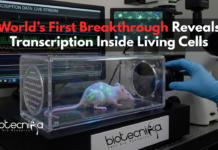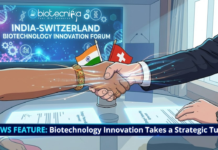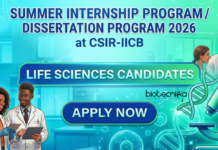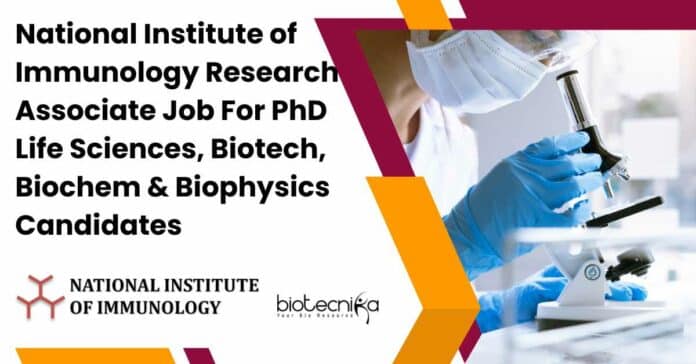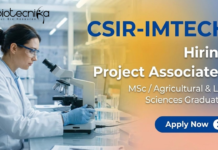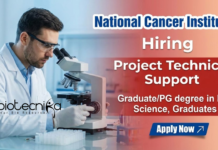NII Delhi Research Post For PhD Biotech, Biochem, Biophysics & Life Sciences
NII Delhi Research Post For PhD Biotech, Biochem, Biophysics & Life Sciences. PhD Biotech, Biochem, Biophysics and Life Sciences Research Associate job opening. Interested and eligible applicants can check out all of the details on the same below
Hi, since you are interested in the role of Research Associate at the National Institute of Immunology, check out all of the possible interview questions that you may have to face and the answers below.
This job expires in
NATIONAL INSTITUTE OF IMMUNOLOGY
ARUNA ASAF ALI MARG
NEW DELHI-110067
Applications are invited for the positions of Research Associate (One position only) for the following time-bound sponsored project as per the details given below:
Name of the Posts – Research Associate
No. of Posts – (One position only)
Name of the Project – “Regulation of Plasmodium Cell Cycle and Cell Division by Protein Phosphorylation” funded by DBT/Wellcome Trust India Alliance
Name of the PI – Dr. Pushkar Sharma Staff Scientist-VII ([email protected])
Tenable till: 31.12.2028
How to Apply –
Interested candidates may apply directly, STRICTLY IN THE PRESCRIBED FORMAT GIVEN BELOW, through e-mail, to the Investigator of the project, clearly indicating the name of the project along with their complete C.V., e-mail id, fax numbers, telephone numbers. Only Short listed candidates will be called for interview and they required to submit attested copies of all their certificates and a Demand Draft of Rs 100/- drawn on Canara Bank or Indian Bank payable at Delhi/New Delhi in favour of the Director, NII (SC/ST/PH and Women candidates are exempted subject to submission of documentary proof), at the time of interview.
LAST DATE OF RECEIPT OF APPLICATIONS: 28.07.2023
General Terms & Conditions –
- The candidates selected for the above posts will be on contract for a period of one year or duration of the project whichever is shorter, at a time.
- No hostel/ housing facility will be provided.
- Applicants may clearly mention the category they belong to i.e. SC/ST/OBC/PH and attach documentary proof of the same.
- No TA/DA will be paid for attending the interview, if called for.
- Apart from sending application in the prescribed format given below, candidates should send complete Curriculum Vitae along with the names of three referees. Curriculum Vitae should contain details of the experimental expertise and list of publications.
- Canvassing in any form will be a disqualification.
- The Interviews will be held in offline/online mode.
*Re-advertisement for the position of Research Associate recently advertised on 24.05.2023 and last date of application was 07.06.2023. The candidates who have already applied for the above position need not to apply again.
Educational Qualifications – Research Associate: Ph.D in Biotechnology/Biophysics/ Biochemistry/Life Sciences or any other related field.
Job Description: Experience in Molecular Biology, recombinant DNA, protein chemistry, and cell culture techniques. Candidates with experience in malaria research, mass spectrometry and live cell and confocal microscopy, FACS are also encouraged to apply.
Emoluments – The selected candidates will draw consolidated emoluments of Rs. 47,000/- to 54,000/-per month plus 24% HRA (As per DST OM dated 30.01.2019)
Check the notification and the application format below
Hi, since you are interested in the role of Research Associate at the National Institute of Immunology, check out all of the possible interview questions that you may have to face and the answers below.
- Can you provide an overview of your experience and expertise in molecular biology, recombinant DNA, protein chemistry, and cell culture techniques? Answer: As a Research Associate, I have acquired extensive experience in molecular biology techniques such as DNA manipulation, PCR, cloning, and gene expression analysis. I have also worked with recombinant proteins, performing protein purification, characterization, and biochemical assays. In addition, I have experience in cell culture techniques, including cell line maintenance and transfection. These skills have been developed through my academic training and previous research projects.
- Have you worked on any projects related to malaria research or have experience in techniques such as mass spectrometry, live cell imaging, confocal microscopy, or FACS analysis? Answer: Yes, during my research journey, I had the opportunity to contribute to projects related to malaria research. Specifically, I have worked on understanding the molecular mechanisms of Plasmodium parasites. I have utilized techniques such as mass spectrometry for proteomics analysis, live cell imaging for visualizing cellular processes, confocal microscopy for high-resolution imaging, and FACS analysis for cell sorting. These experiences have provided me with insights into the complexities of malaria and the tools to investigate its pathogenesis.
- How have you applied your expertise in molecular biology and protein chemistry to advance the understanding of cell cycle regulation and cell division in Plasmodium? Answer: In my previous research, I focused on investigating the role of protein phosphorylation in regulating the cell cycle and cell division processes in Plasmodium parasites. I employed molecular biology techniques to study gene expression patterns, protein-protein interactions, and post-translational modifications. Through protein chemistry techniques, I conducted enzyme assays, protein-protein interaction assays, and protein characterization studies. These approaches allowed me to unravel the signaling pathways and molecular mechanisms involved in Plasmodium cell cycle regulation and cell division.
- Can you provide examples of your contributions to scientific publications or research outputs related to your field of expertise? Answer: During my Ph.D. and subsequent research projects, I have actively contributed to scientific publications. For example, I co-authored a study investigating the role of a specific protein in the cell cycle progression of Plasmodium parasites. The research findings were published in a peer-reviewed journal and provided new insights into the molecular mechanisms underlying cell division in malaria parasites. Additionally, I have presented my work at scientific conferences and contributed to collaborative research efforts, leading to further publications and advancements in the field.
- How do you stay updated with the latest developments and techniques in your field of research? Can you provide an example of how you implemented new knowledge or methodologies in your work? Answer: To stay abreast of the latest advancements, I regularly engage with scientific literature, attend conferences, and participate in workshops and training programs. I also actively collaborate with researchers in related fields to exchange knowledge and stay informed about emerging techniques. For instance, I recently incorporated single-cell RNA sequencing in my research project to explore gene expression heterogeneity within Plasmodium populations. This innovative approach provided a deeper understanding of the parasite’s adaptation strategies and its implications for disease pathogenesis.
Note: The answers provided are for reference purposes and may vary based on the individual’s actual experiences and qualifications. It is recommended to personalize the answers according to your specific background and achievements.
Editor’s Note: NII Delhi Research Post For PhD Biotech, Biochem, Biophysics & Life Sciences. Please ensure that you are subscribed to the Biotecnika Times Newsletter and our YouTube channel to be notified of all of the latest in the industry. Follow us on all of our social media like Twitter, Telegram, Facebook and Instagram.



